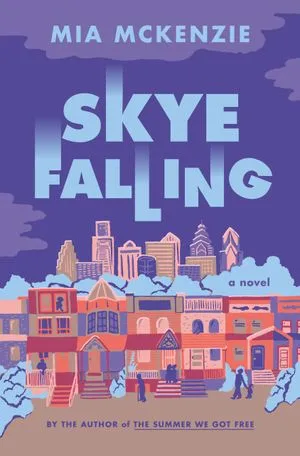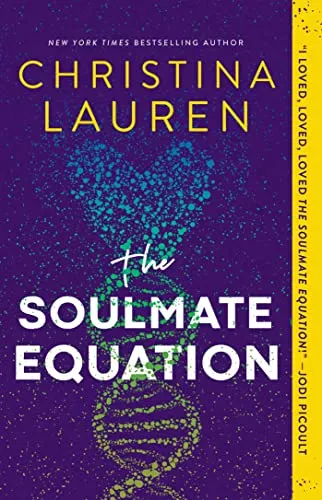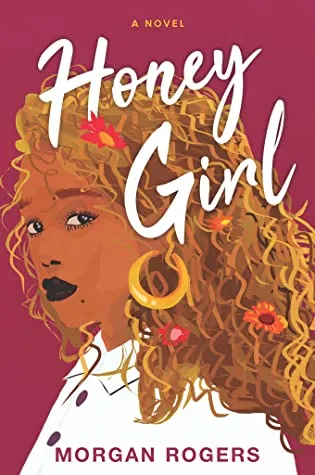
The Undeniable Draw of Single POV Romance
Several weeks ago, I found myself in a dreaded reading slump. I tried countless books, only to put them down only a few pages in, when I could read at all. I tried fiction, nonfiction, graphic novels, romance novels, YA fantasy, anything that I could just get through. I started four very different audiobooks, willing to sit around coloring or playing a puzzle game if it meant I made it through a book. But nothing was sticking.
Until I picked up The Soulmate Equation.
Christina Lauren’s books had been a little hit and miss for me for the past couple years, more due to trope preference and projectile vomiting than anything else (that last one was The Unhoneymooners, BTW). But I needed to read it anyway, so I figured I might as well pick it up.
And then, I didn’t stop. I turned and turned the pages, laughing and smiling and groaning and screeching. The story propelled forward, and I was ride-or-die for Jess and River (and Juno). (And Fizzy.)
It would be days later, while thinking about books that gave me the same kind of squishy feelings as The Soulmate Equation, that I would realize what it is that these books have in common: Single POV.
In romance (well, in fiction, but we’re talking about romance), there are a few different ways to write a story:
- First person single point of view, in which the protagonist is telling the story (so it’s from their point of view and they use “I”)
- Third person omniscient, where the narrator knows what’s happening everywhere and will do as much “head jumping” as necessary to tell us what everyone’s thinking in a given scene
- Third person closed, where we’re only in one person’s head (there can be multiple points of view in third person close, but it’s basically written similarly to first person)
- There is also second person, but that’s not really a romance thing; I’ve only seen it in lit fic and fan fiction (lol)
I’ve read great romances in all of these styles, written in both past and present tense, and I have gotten a great deal of enjoyment out of all of them. But the type of story that sticks with me the most is third person closed, with just one person’s point of view.
Why is that, though? Why does my brain click with that one the most?
I’m not completely sure, but it might be…The Mystery.
(Let’s not bother with the fact that I don’t actually read mysteries.)
Recently, I was talking about romance to a group of people who don’t really read romance, and I was explaining that a good romance story asks a question: it asks who are these people and why can’t they be together. Then it takes the time to answer that question and resolve it. So when you’re only getting one person’s perspective in the relationship, the mystery is even greater! You don’t know why somebody might be treating the narrator a certain way; you don’t know why they’re evading the truth; you only have the narrator’s perspective on how their love interest is looking at them — and you’ve only got one person you want to slap when even you can see what they’re not picking up. All of the questioning, the yearning, the growth, the longing, the insecurity, the adoration. You’re only getting it through one person’s eyes, and you get to watch them fall further and further in love with someone else.
As someone who connects very strongly with characters before anything else, a good internal narration can make or break a romance for me. To make me love the story, you have to make me love its people, whether I find them adorable or am waiting for them to grow the ef up. You have to make me want them to want to get therapy, or stand up to an overbearing parent. You have to make sure that narrator is my heart and soul by the time I’m done with their story, and make me fall in love with the person they’re falling in love with all the while. And the best way to produce that kind of love, with all those feelings I mentioned before, is to let readers stay with one protagonist, to not know their love interest’s mind. When we get to be in both (or more) people’s heads, we know things that make us more sympathetic or empathetic to them, when their love interest might not be. We know why they’re being an asshole, or who called to make them leave their date early. We know that the other person has feelings for them, even if they’re unsure. Sometimes it’s good to have that certainty, to go on that journey from everyone’s point of view. But I’ll get the most fulfillment, the most enjoyment, out of one person telling that story.
Which is an interesting discovery to make when the majority of romances being published right now are dual POV.
I’ll continue to investigate what it is that makes single POV so compelling to me — maybe there’s a certain type of writer with a certain type of writing style; maybe it’s a history of reading fan fiction that is heavily third person closed. Maybe, thinking about whose writing I enjoy, there’s an element of both. Either way, I intend to keep hunting them down in order to really dig into that love.
Here are a few more single POV romances that really stuck with me:
The Love Hypothesis by Ali Hazelwood
Unwritten Rules by KD Casey
Honey Girl by Morgan Rogers
Boyfriend Material by Alexis Hall
The Chai Factor by Farah Heron
Love Lettering by Kate Clayborn
Thirsty by Mia Hopkins
Bonus

Skye Falling by Mia McKenzie
While it’s not an actual romance, it does have a romantic arc that ends in an emotionally satisfying way — and it has a narrator who I adore. Skye is messy and a little broken and goes through several journeys over the course of this book. And gets a whole family while she’s at it.
Looking for another point of view on point of view?










